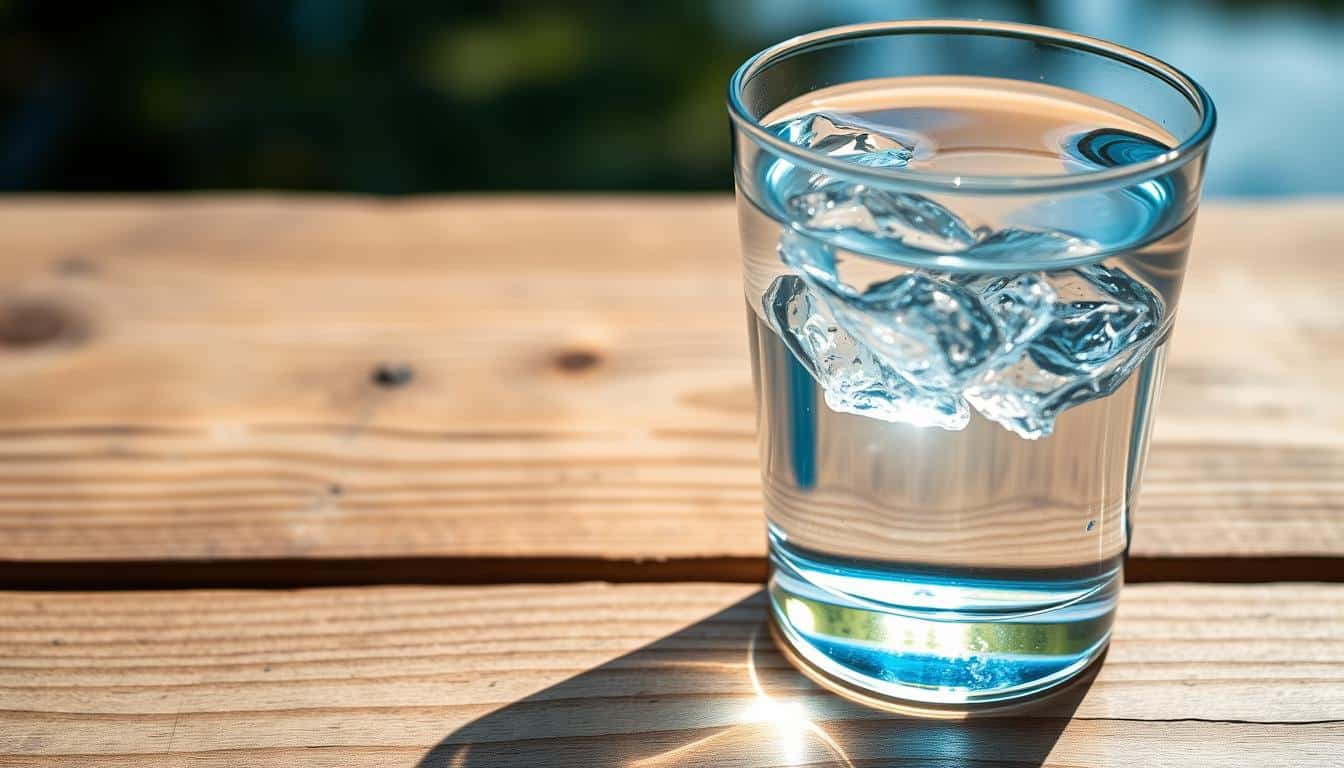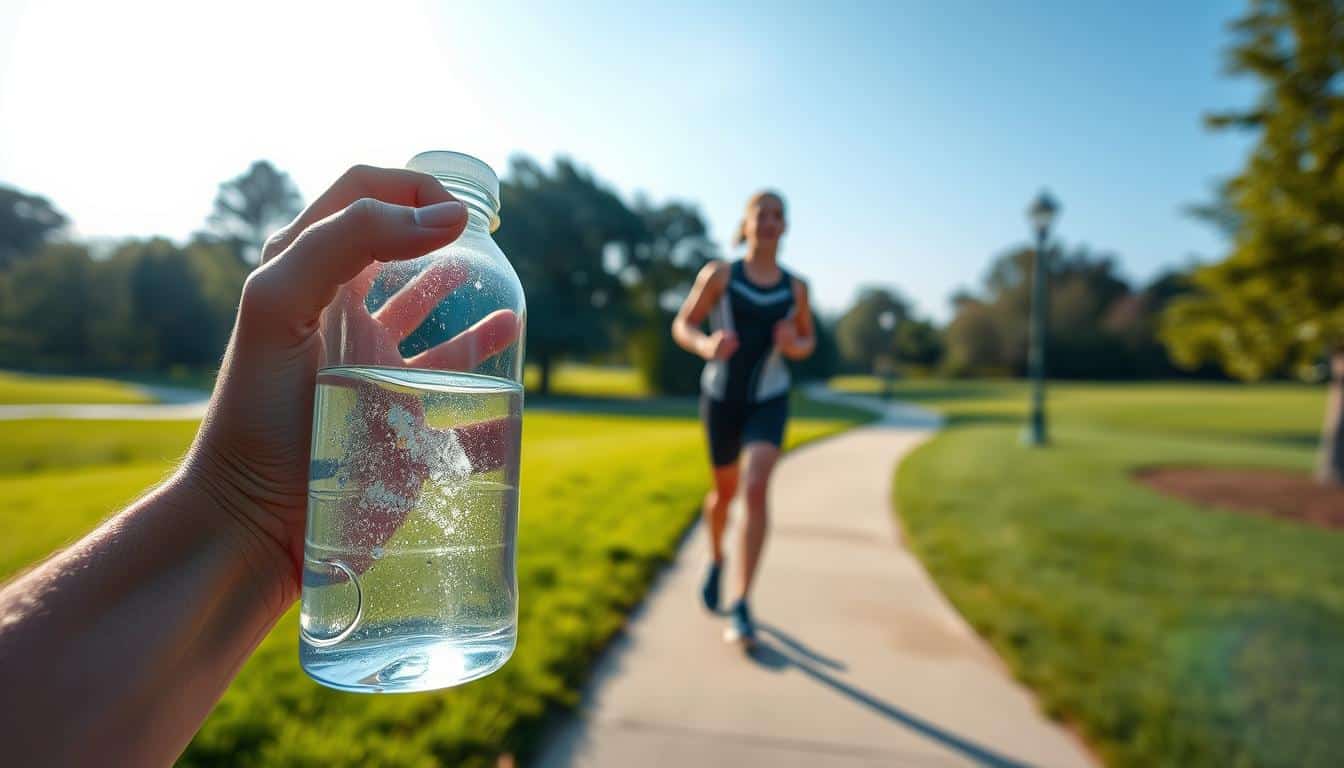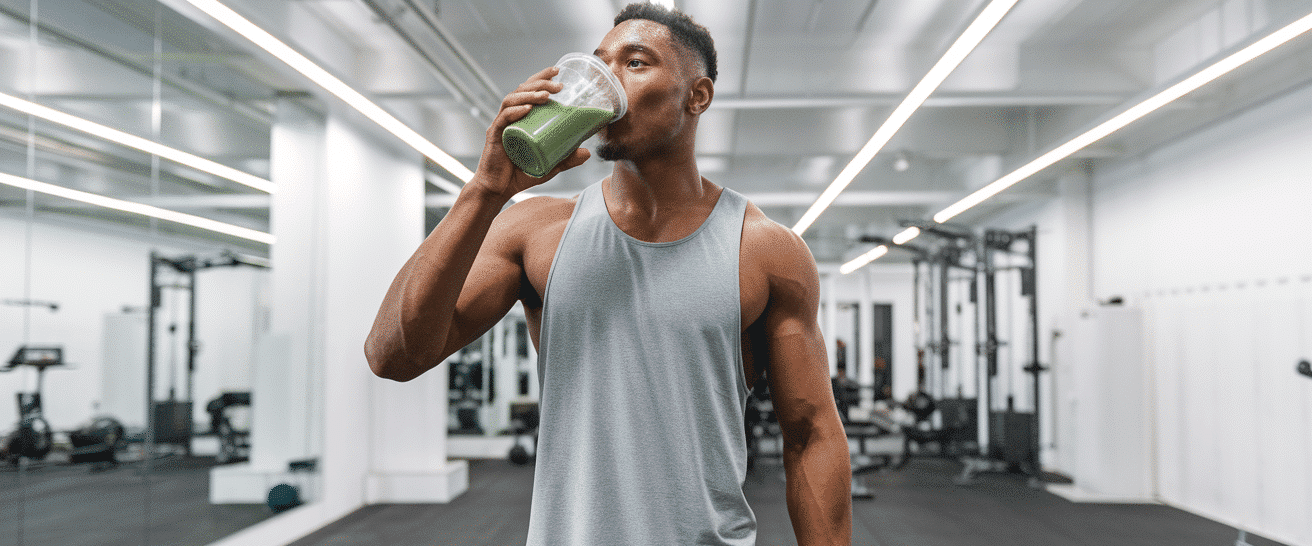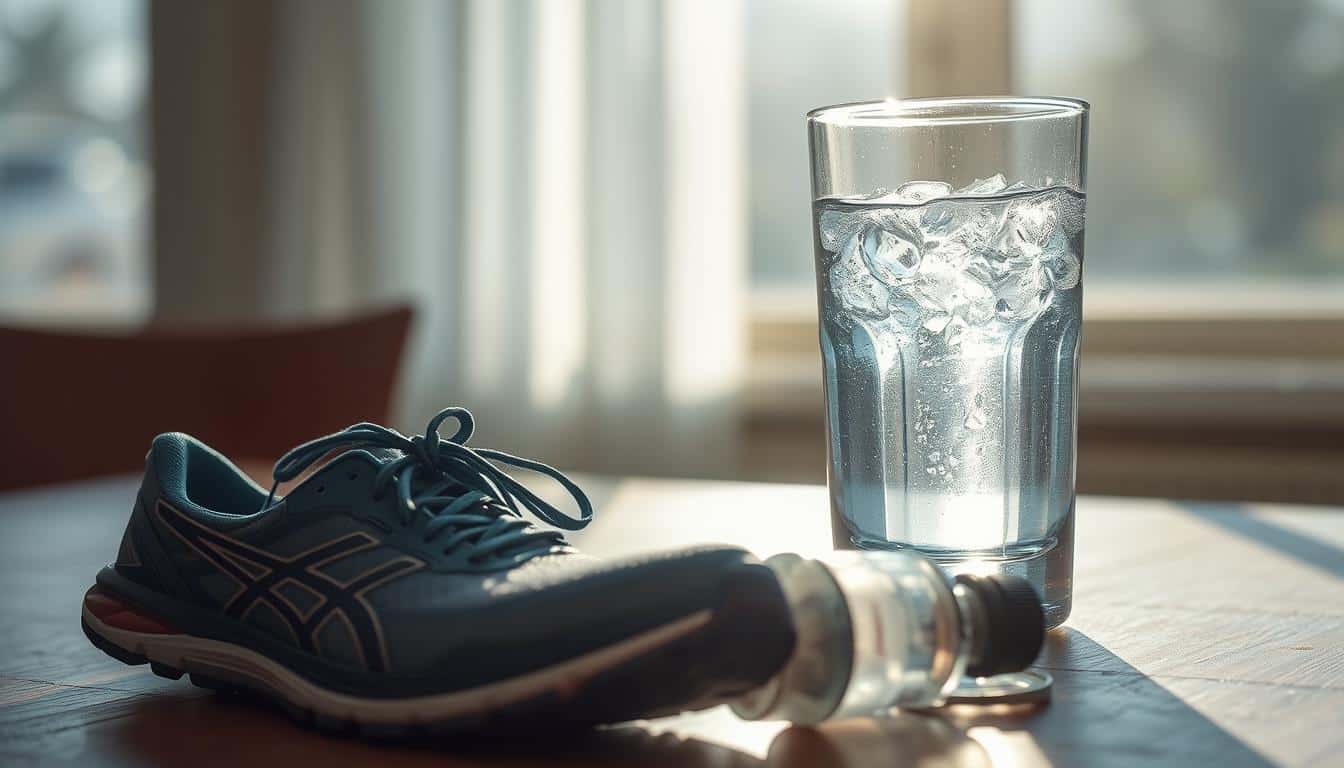Ever felt sluggish or overheated during a run? Your body might be signaling for more water. Staying hydrated is essential for peak performance, especially when you’re hitting the pavement early in the day.
Water makes up 60-70% of your body, playing a key role in joint lubrication and temperature regulation. Without enough, you risk fatigue, overheating, and even impaired focus. But don’t overdo it—balance is key.
Ready to fuel your run the right way? Let’s dive into simple, actionable tips to keep your body in top shape.
Why Hydration Before a Morning Run is Essential
Your body relies on water to keep you moving efficiently. It’s not just about quenching thirst—water fuels every cell, helping you perform at your best. Without it, your body struggles to maintain balance, especially during physical activity.
The Role of Water in Body Function
Water is your body’s multitasker. It helps regulate temperature by enabling sweat to cool you down. During exercise, up to 75% of your energy turns into heat, making this cooling mechanism essential.
Water also transports nutrients to your muscle cells, ensuring they have the energy to keep going. Think of it as the delivery system that keeps your body running smoothly.

How Dehydration Affects Running Performance
When you’re dehydrated, your blood volume drops. This forces your heart to work harder, increasing your heart rate and speeding up fatigue. Even a 2% loss of water can reduce your performance by 10%.
Dehydration also impacts your brain. Focus and coordination decline, making it harder to push through tough moments. For example, a runner struggling uphill might feel sluggish due to thicker blood and reduced oxygen flow.
| Dehydration Level | Impact on Performance |
|---|---|
| 1% | Increased fatigue |
| 2% | 10% performance drop |
| 3% | Severe fatigue, impaired focus |
How Much Water Should You Drink Before a Run?
Your water needs aren’t one-size-fits-all—let’s break it down. While the old “8 glasses a day” rule is a good starting point, it doesn’t account for factors like climate, activity level, or individual sweat rates. For runners, understanding your unique fluid requirements is key to staying energized and focused.

Daily Water Intake Recommendations
At a minimum, aim for 1.5 liters of water per day to support basic body functions. However, if you’re active, you’ll need more. A simple way to check your intake is by monitoring your urine color. Pale straw indicates you’re well-hydrated, while darker shades suggest you need more fluid.
Adjusting for Individual Needs
Your body’s weight and sweat rate play a big role in determining your water needs. Try the sweat test: weigh yourself nude before and after a one-hour run. For every gram lost, drink one milliliter of water to replace losses. For example, if you lose 500 grams, replenish with 500 milliliters post-run.
Don’t forget, food can also contribute to your intake. Watermelon and cottage cheese are great options for adding fluid to your diet. And while caffeine can be a pre-run boost, too much can dehydrate you—so keep it in moderation.
Timing Your Hydration for Optimal Performance
When you drink water is just as important as how much you drink. Proper timing ensures your body is ready to tackle the day, especially if you’re active. Let’s break down the best times to hydrate for peak performance.
Drinking Water the Night Before
Start your evening with a plan. Drinking 500ml of water before bed helps your body stay balanced overnight. Pair it with an electrolyte-enhanced drink to boost fluid retention. This simple habit ensures you wake up ready to go.
Pro tip: Keep a water bottle by your bedside. It’s a visual reminder to sip before sleep and first thing in the morning.
Hydrating First Thing in the Morning
Your body loses water while you sleep, so replenishing it is key. Start your day with 500ml of water. Add a pinch of salt to help retain fluid and increase blood volume. This small step can make a big difference in your energy levels.
For example, many runners follow a 5am ritual: sip 400-600ml over 30 minutes to prepare for their workout. It’s a simple yet effective way to fuel your body.
| Time | Action | Benefit |
|---|---|---|
| Night Before | Drink 500ml water | Balances overnight fluid levels |
| First Thing Morning | Drink 500ml water + pinch of salt | Boosts energy and fluid retention |
Over the days, you’ll notice how proper timing enhances your performance. Whether you’re a casual jogger or a seasoned athlete, these tips can help you stay at your best.
Understanding Electrolytes and Their Importance
Electrolytes are the unsung heroes of your body’s performance. These minerals, like sodium and potassium, act like tiny battery charges for your muscles. They keep your fluid levels balanced and your energy steady, especially during intense activity.
What Are Electrolytes?
Electrolytes are minerals that carry an electric charge. They include sodium, potassium, calcium, and magnesium. Sodium, for example, maintains a blood concentration of 135-145mmol/l. This balance is crucial for muscle function and nerve signaling.
Think of them as the spark plugs for your body. Without enough, your muscles might cramp, and your energy can dip. For example, a runner with salt crystals on their hat is likely losing a lot of sodium through sweat.
How Electrolytes Impact Hydration
Electrolytes help your body retain fluid and regulate blood volume. When you sweat, you lose sodium—up to 2,000mg per liter for some athletes. This loss can lead to muscle cramps and fatigue.
Sports drinks like Gatorade or Lucozade contain 400-500mg of sodium per liter, helping replenish what you lose. For low-key runs, try salted peanuts instead of tablets. They’re a tasty, natural way to boost your sodium levels.
But be cautious—too much water without enough electrolytes can lead to hyponatremia, a dangerous drop in sodium levels. Balance is key.
| Electrolyte | Role in the Body |
|---|---|
| Sodium | Regulates fluid balance and nerve function |
| Potassium | Supports muscle and heart function |
| Calcium | Strengthens bones and aids muscle contraction |
| Magnesium | Helps with energy production and muscle relaxation |
Signs of Dehydration to Watch For
Feeling off during your workout? It might be dehydration. Your body sends clear signals when it’s low on fluids. Recognizing these signs early can help you stay on top of your game.
Physical Symptoms of Dehydration
Early signs include a dry mouth, headache, and sluggishness. These are your body’s way of saying it needs more water. Ignoring them can lead to bigger problems like muscle cramps or dizziness.
Severe symptoms, like confusion or no urination, require immediate attention. Sunken eyes and rapid breathing are also red flags. These indicate chronic dehydration and should not be ignored.
How to Check Your Hydration Status
One simple test is the pinch test. Pinch the skin on the back of your hand. If it doesn’t snap back quickly, you might be dehydrated. This test checks your skin’s elasticity, which drops with low fluid levels.
Another method is monitoring your urine color. Pale straw means you’re hydrated, while darker shades suggest you need more water. During long training sessions, check your urine hourly to stay on track.
For example, a cyclist avoided “bonking” by regularly checking their status. They drank 1.5 times the fluid lost post-ride to stay balanced. This simple habit kept their energy steady throughout the day.
Hydration Strategies During Your Run
What you drink mid-run can make or break your performance. Staying on top of your fluid intake ensures you maintain energy and avoid fatigue. Let’s explore how to hydrate effectively while on the move.
How Much to Drink During a Run
Your body can absorb about 750ml of water per hour. Aim for 50-250ml every 20 minutes, depending on your pace and conditions. For example, in hot weather, you might need more to replace lost fluids.
Handheld bottles are great for shorter training sessions, while hydration vests work better for longer distances. Choose what feels comfortable and fits your routine.
Using Sports Drinks vs. Water
For runs under an hour, plain water is usually enough. For longer sessions, consider drinks with electrolytes. They help replace sodium lost through sweat—aim for at least 700mg per liter.
Be cautious with sugary options. While they provide quick energy, they can lead to crashes later. Opt for balanced formulas that support sustained performance.
For example, many athletes prefer brands like Gatorade or Nuun for their balanced mix of electrolytes and carbs. Always test your drink during training to ensure it works for you.
Conclusion
Mastering your fluid intake can be the game-changer you’ve been looking for. Start by pre-hydrating to set a strong foundation. Track your urine color to gauge your status—pale straw is your goal. Don’t forget to balance electrolytes for sustained energy and focus.
Your next personal record starts tonight. Use the sweat test to tailor your intake to your unique needs. Remember, clear urine doesn’t always mean optimal performance. It’s about finding what works best for you.
Share your wins on social media and inspire others to fuel their journey. Small changes can lead to big results. Ready to take your game to the next level? Start today!


